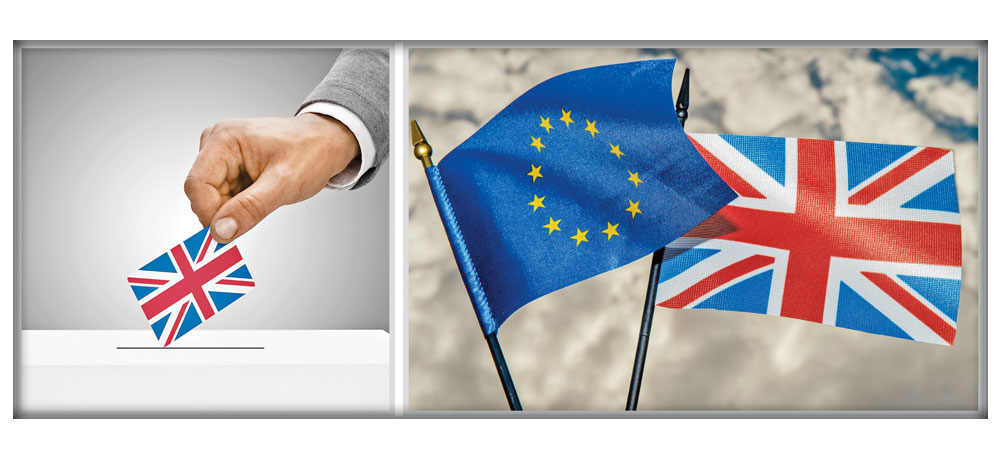ASIA’S ACQUITTAL WELCOMED IN UK
- 10 Nov - 16 Nov, 2018
The call for a second referendum on the Brexit issue, supported by former Prime Minister Tony Blair and former Deputy Prime Minister Nick Clegg, suddenly became a political hot potato from a fairly luke warm one when Nigel Farage, the former leader of the UK Independence Party (UKIP) and the virtual father of the Brexit movement, announced on a radio programme that even he was now veering towards the idea of a second referendum so that the issue could be conclusively decided and buried, once and forever. He said that he was confident that this time around Leavers would win by an even bigger margin and that the overwhelming scale of their victory would bury the issue for generations to come.
The polls do not exactly support that. A recent snap survey found that if a poll were held today, 55 per cent would opt to remain in the European Union and only 45 per cent would opt to leave. The original vote held in June 2016 was 52 to 48 in favour of Brexit. The findings would appear to support a similar shift in public opinion found in a poll for The Independent newspaper a few weeks earlier according to which 51 per cent favoured remaining in the EU and only 41 per cent opposed it, indicating that many who may have changed their minds on Brexit actually do not know their minds. Perhaps that comment may be slightly harsh because 95 percent of Brexit supporters were opposed to a second referendum while 77 per cent of remaining voters wanted it, which still leaves us with the rather puzzling question why 23 per cent of remaining voters do not want a second referendum. Two thirds of people lack confidence that Theresa May can get the country a good Brexit deal but that should not be seen as an aspersion on her because getting a good Brexit deal is about as likely as finding Aladdin’s lamp; even Sir Winston Churchill would have been pushed irrespective of how many cigars he went through. The simple logic is that the best possible deal with Europe can only be achieved by staying in the EU and if Britain’s decision to leave the EU does not give out that message, loud and clear, the EU would unravel in three months.

The poll further found that 64 per cent of Labour voters backed a second referendum while only 18 per cent of Tory voters were in favour of it. 79 per cent of Tory voters were definitely against the idea and 31 per cent of Labour voters pronounced themselves against it. And herein lies the dilemma. With 79 per cent of Tory voters against it, no Tory government ever will support a second referendum. And with 31 per cent of Labour voters against a second referendum, the Labour Party just does not know what to do. It cannot lose 31 per cent of its voter base, while in appeasing the 31 per cent it does not want to alienate the 64 per cent who want a second referendum after the details of the terms under which the UK will be leaving the EU are finalised. Labour is thus pursuing an ambivalent policy which says that it wants the Brexit that is best for jobs but will not say whether this means it wants the country to remain in the single market and customs union which seems the only earthly way by which jobs can be safeguarded. Labour leader Jeremy Corbyn is being led rather than leading on this issue and is perhaps waiting for the polls to show a support of 60 per cent at least for a second referendum before he commits himself.
All of which proves, if proof indeed was needed, that the most important issues of state priority do not lend themselves to decision through referendums. A vast number of people were really not equipped to understand the issues at stake and therefore voted on emotional reactions to situations which they felt had been created by Britain’s membership of the EU. One woman was under the impression that an EU ruling had it that bananas sold throughout the EU would have to be straight whereas she preferred bendy bananas; a simple trip to any grocery shop would have shown that there were plenty of bendy bananas being sold up and down the land, but an emotional condition does not lend itself to common sense solutions. Another man, who had been in hospital a short while before the referendum of June 2016, found that most of the nurses were foreigners; he thought this was because they were being given preference over British nurses and therefore decided to vote Leave. The truth is that with the government’s unending austerity measures, nurses are being given such a bad deal that one in every ten is leaving the profession. With nurses from Eastern Europe also returning home with Brexit looming over the horizon, no one is sure where the required nurses are going to come from.
Politically, a response based on emotions is much easier to stir up than one based on reason and that, as the experience both here and in the US has found out, can be a huge down side of democracy. The only safeguard against politicians going down that route is the premise that the state and its interests will always supersede the party interest. When that premise goes overboard, all bets are off.
COMMENTS